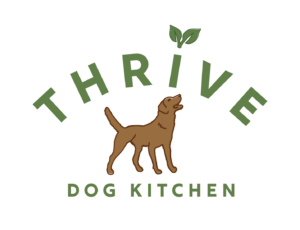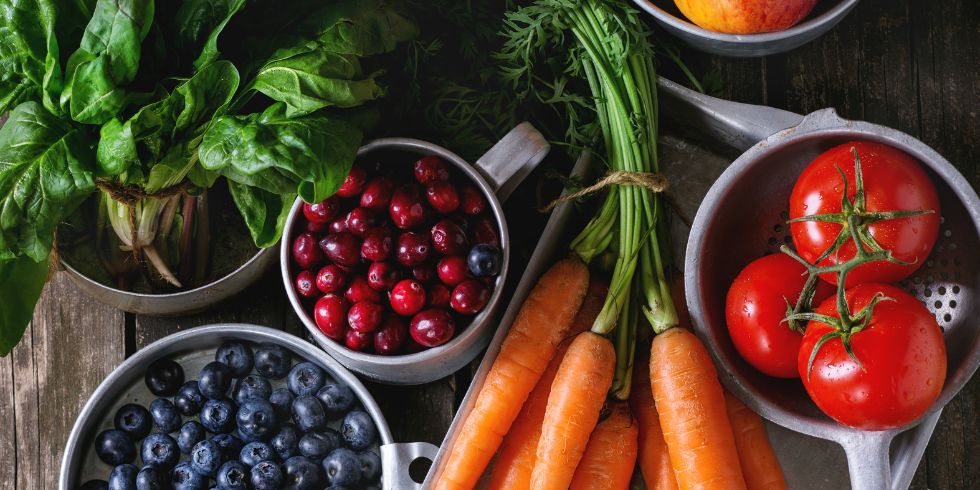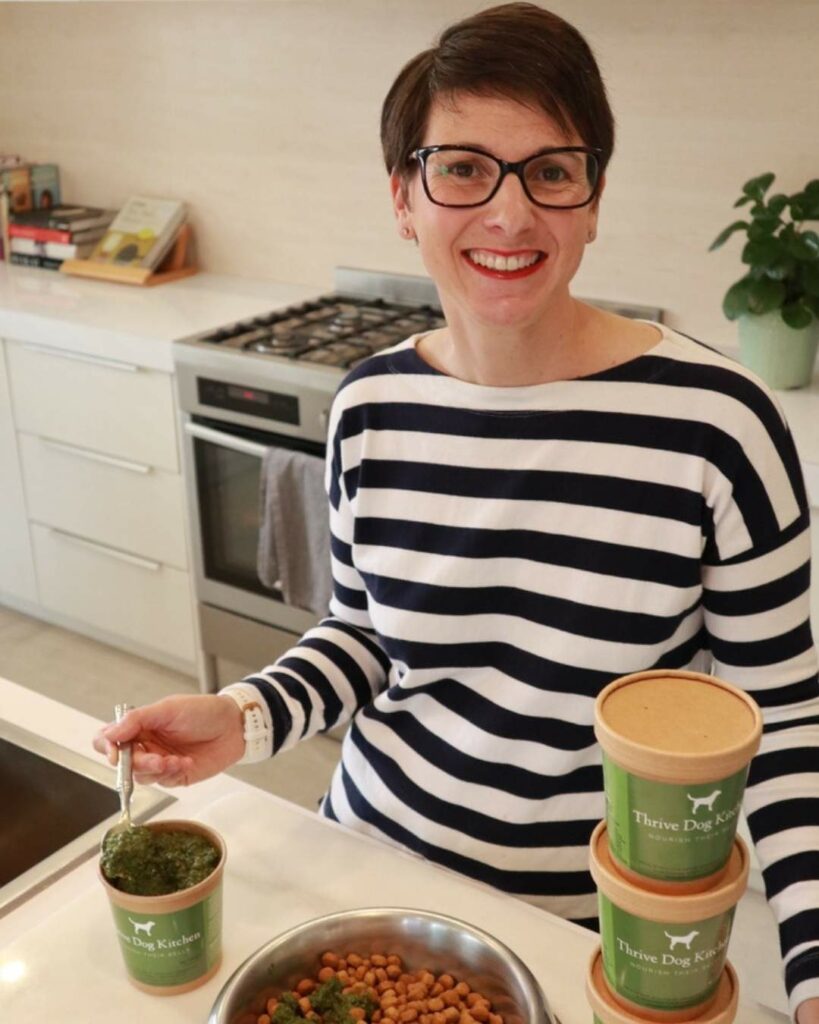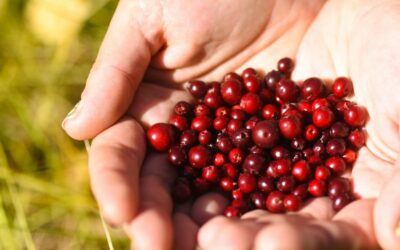The short answer is – to improve the health and well-being of your dog.
Plants, like fruits and vegetables, in small amounts, are a source of fibre, antioxidants, vitamins, minerals and phytonutrients. Additionally, they nourish your dog’s microbiome to keep your dog’s gut healthy.
The modern dog’s diet varies from kibble to tinned food, to grain-free, to freeze-dried to homemade raw and everything in between. Industry leaders, including Dr. Karen Shaw Becker, Dr. Ian Billinghurst, Rodney Habib, Dr. Conor Brady and Dr. Nick Thompson, suggest that plant matter is a healthy addition for today’s dogs whatever type of foods they are fed.
Fruits and vegetables are carbohydrates, one of the three macro-nutrients. The other two macro-nutrients are protein and fat. Dogs require protein and fat to survive, but do not have a nutritional requirement for carbohydrates. They will survive for a time-consuming only plant-based foods but need animal meats to thrive.
Carbohydrates are found only in plants. They contain different amounts of sugar, types of fibre and phytochemicals. When we say feed your dog carbohydrates, we mean the healthy carbohydrates that are full of fibre and phytochemicals and low in sugar, which are most suitable for your dog to eat. They are functional carbohydrates. The addition of such carbohydrates, found in certain types of fruits, vegetables, nuts and seeds may improve your dog’s diet because they help fight and prevent disease in your dog’s body.
“. . .feed low-glycemic, fiber-rich “good carbs” that nourish your dog’s gut and immune system, and avoid feeding high-glycemic, refined “bad carbs” that provide excessive sugar and create metabolic stress.”
-Dr. Karen Shaw Becker and Rodney Habib, The Forever Dog (2021)
A 2005 study conducted at Purdue University showed that vegetable consumption reduced the risk of bladder cancer in Scottish Terriers that have a strong breed-associated risk for the disease. When fresh vegetables were added to commercial kibble the development of bladder cancer was prevented and/or slowed down the development of cancer. The risk of developing cancer was reduced by 70% when yellow or orange vegetables were consumed; and the risk dropped by 90% when green leafy vegetables were eaten.
Benefits of Fruits and Vegetables
When you feed your dog suitable fruits and vegetables, they will reap many benefits that may not be found in the other macronutrients of protein and fat, including:
- Packed with vitamins and minerals
- Cancer-fighting
- Repairs damaged DNA cells
- Full of antioxidants and phytonutrients
- Protects against heart disease
- Excellent source of both soluble and insoluble fibre
- Builds and protects the microbiome
Are Dogs Able to Digest Plants?
Yes! When prepared for optimal digestion your dog will be able to digest fruits and vegetables. Your dog has a short and acidic digestive tract, whereas we humans have a long and low acidic digestive tract.
Have you ever fed your dog carrot sticks and it comes out the other end the same way it went in? Well, that’s because your dog’s body didn’t have enough time to digest the carrot due to the length of their digestive tract.
The preparation of plant matter is critical for your dog to absorb their beneficial nutrients. To make it easier for your dog to digest plant matter, lightly steam, puree or blend the fruits and vegetables. This breaks down the cell walls of the plants to enable better nutrient absorption.
Some vegetables, including pumpkin, kumara and potato need to be cooked first, as your dog cannot digest them raw.
Fruits and Vegetables to Feed
Feed the rainbow of vegetables and fruit to enrich your dog’s diet with phytonutrients and antioxidants. The more variety of colour, the better. Include red, yellow and orange fruits and vegetables that are known as carotenoids and blue and purple tinted fruits and vegetables known as flavonoids.
The list of fruits and vegetables to include in your dog’s diet is endless. We recommend feeding seasonally. Here are few suggestions to get you started:
| Vegetables | Fruits |
| Broccoli | Apple |
| Cauliflower | Blueberries |
| Leafy greens | Raspberries |
| Zucchini | Mango |
| Cucumber | Banana |
| Pumpkin | Pears |
| Kumara | Kiwifruit |
| Cabbage | Feijoa |
Fruits and Vegetables to Avoid
- Aim to avoid pro-inflammatory foods typically found in high starch foods, e.g., potatoes
- Onions or any vegetables in the onion family, including leeks, shallots, green onions
- Grapes or currants, including sultanas and dried currants.
How to Feed Fruits and Vegetables to Your Dog
Whether your dog already likes fruits and vegetables, start small then increase amounts over time. A small number of fresh fruits and vegetables prepared in a way for your dog to best digest them is a suitable place to start.
Expert opinions vary on how much your dog’s diet should consist of fruit and vegetables. Recommendations range between 5% to 25% of your dog’s diet. Our dog, Jessie, is fed at the top end of the scale eating about 25% fruits and vegetables.
If you feed your dog a commercial diet of processed foods like kibble, simple steps can be taken to incorporate fruits and vegetables. Replace 20% of the dry food with 20% fresh lightly steamed or pureed and blended fruits and vegetables.
The aim is to bring balance to your dog through their stomach. The addition of plant-based, high functioning carbohydrates will improve the health and well-being of your dog through the addition of nutrients, and reduce the risk of illnesses, including cancer, diabetes and obesity. This will optimise your dog’s diet allowing them to thrive.






0 Comments